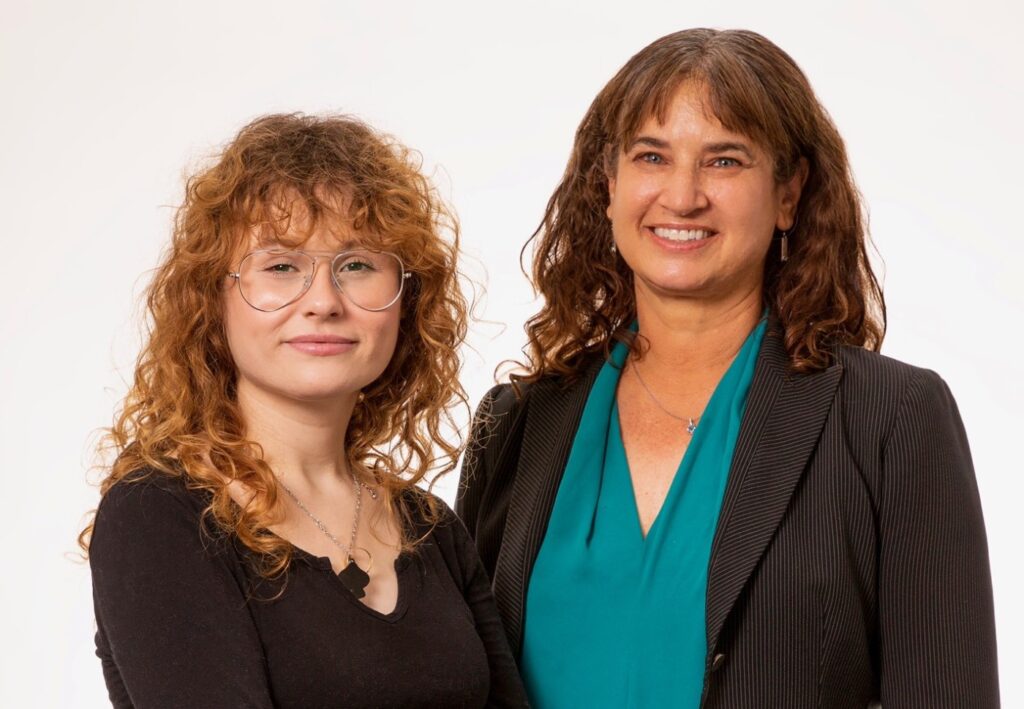
Words possess a tremendous amount of power and carry the ability both to hurt and to heal. And sometimes, a single word can change everything.
A student and an administrator at Cal State Fullerton got to experience this type of impactful change firsthand when they joined forces to revise the university’s use of the phrase “academic probation” to “academic notice.”
When Delilah La Pietra was a freshman, she struggled with adjusting to college life and soon found herself placed on CSUF’s academic probation, defined as when a student’s GPA drops below 2.0.
This placement prompted La Pietra to move through a series of steps initiated by the school intended to improve students’ academic standing, including meetings with advisers and access to resources.
As she worked to bring up her grades, La Pietra couldn’t shake the negativity she associated with the word “probation.” She used her final project in an independent, research-based psychology class to see if others felt the same.
“I took my stress of being placed on probation at the time, and that’s what I wrote my project on,” La Pietra said.
In early 2020, La Pietra reached out to 800 fellow Titans who were also on academic probation at that time with an anonymous survey that asked them to share their perceptions and feelings associated with the status.
With more than 100 responses received, the results were clear. Ninety-three percent of the respondents reported feeling “scared” by the phrase “academic probation,” with many of the respondents also being students of color.
“It was overwhelming that everyone felt like a criminal, and everyone hated feeling like they were getting punished for getting bad grades,” La Pietra said. “It made them feel less motivated to get their grades up, which is how I felt, too, in that moment.”
At this same time, La Pietra’s path crossed with CSUF assistant vice president for Student Success and director for the Academic Advisement Center, Elizabeth Boretz, who oversees the centralized program that supports Titan students who are experiencing academic difficulty.
It was Boretz who provided La Pietra with access to the students on academic probation for her study. But before ever meeting La Pietra, she and her team were already exploring a different approach to the phrase.
“We had started talking about our discomfort with the word ‘probation’ in general,” Boretz said. “We knew it was not the appropriate lexicon to apply to students who are just trying to improve their performance and reach their goals.”
Boretz had been waiting for the right moment to pursue a commitment to change in this area, and La Pietra’s project was just the prompting she needed.
The timing also aligned with the start of the COVID-19 pandemic and a number of high-profile racial injustices that had occurred nationally, including the murder of George Floyd. After seeing La Pietra’s survey results, Boretz was inspired to make sure that when CSUF’s campus reopened, students, faculty and staff returned to a place that was different than when they left.
“I already had in mind the concept of ‘academic notice,’ so it was very shortly after that that I went to my supervisor (Karen Scissum Gunn), and I said to her, ‘Why don’t we go ahead with this?’ She immediately said she would support me,” Boretz said.
Boretz, Gunn and La Pietra came together to produce a white paper recommending the universitywide change from the phrase “academic probation” to “academic notice,” wording that more closely supported the university’s commitment to equity, inclusion and student dignity.
It took nearly a year, but all aspects of the wording revision, from IT to transcript notations, are now fully implemented at CSUF. Along with this change, Boretz and her team took the opportunity to revise the program that supports students who are working to improve their grades. The Academic Success Institute is now the RESET Program – Reimagining Success for Every Titan.
“It’s much more self-directed, reflective and self-paced,” Boretz said. “It was always an encouraging thing, but we’re trying to show students very clearly that we believe in them and that this is an opportunity for them.”
Based on Boretz’s interaction with the students she serves, the change is already making an impact. A phrase that used to invoke feelings of punishment is now viewed as an opportunity for growth.
“When I read through hundreds of comments together, I get a sense of more calm then I used to from them,” Boretz said.
Boretz has presented this work to the other CSU advising directors, with some campuses already moving toward making a similar change.
“It’s been heartening and really gratifying to realize how like-minded we all are in the CSU, and especially at CSUF,” Boretz said.
And for La Pietra, who is now a junior with aspirations of pursuing social work, taking advantage of this platform at this moment to instigate change has made an indelible mark on her personal life.
“To be able to make a change like this and not have a perfect transcript to back it up, that was very inspiring to me,” La Pietra said. “I’m not an over-achieving superstar, but I can still do something meaningful. And that has stuck with me.”
Related Articles
CSUF’s Spring Economic Forecast delivers mixed news for county
Experience CSUF event gives future students a glimpse of college life
CSUF alum pays it forward through philanthropy, mentorship
Russia must account for its war crimes, experts say
Hard work, spirituality, familial support are keys to resiliency in APIDA community, experts say
